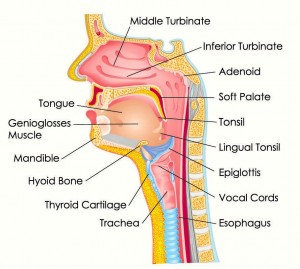Issues with Hearing? Here's When to Seek Help from a Hearing Clinic
Issues with Hearing? Here's When to Seek Help from a Hearing Clinic
Blog Article
Checking out the Field of Otolaryngology: What to Expect When You Speak With an ENT
Otolaryngology, commonly referred to as ENT, includes the diagnosis and therapy of throat, nose, and ear problems. For those experiencing associated issues, seeking advice from an ENT expert can offer quality and alleviation. Comprehending what to anticipate throughout such assessments is important for reliable communication and care. This introduction will outline crucial elements of the ENT experience, consisting of typical reasons for visits and the procedures included in medical diagnosis and therapy.

Comprehending Otolaryngology: An Overview
Otolaryngology, commonly referred to as ENT (Nose, ear, and throat) medicine, is a customized branch of medication that focuses on the diagnosis and treatment of problems affecting these vital areas of the human body. This area encompasses a broad array of disorders, including those associated to hearing, equilibrium, respiratory system function, and speech. Otolaryngologists are trained to manage both medical and medical therapies, using innovative techniques and innovations. Their proficiency expands past typical ailments, dealing with issues such as allergies, sinus infections, and hearing loss. Furthermore, they play a vital role in the administration of head and neck cancers, supplying extensive care tailored to individual patient requirements. On the whole, otolaryngology continues to be essential for keeping health and wellness and lifestyle in affected people.
Common Factors to See an ENT Professional
Numerous people look for the know-how of an ENT specialist for a selection of factors, reflecting the varied nature of problems that affect the throat, nose, and ear. Typical problems consist of chronic sinus problems, which typically leads to consistent nasal congestion and face discomfort. Allergies and their associated signs and symptoms, such as itching and sneezing, also motivate sees to these specialists (ENT Clinic). Hearing loss, whether gradual or abrupt, is one more significant factor for assessment. Additionally, individuals might seek examination for throat disorders, consisting of persistent hoarseness or swallowing troubles. Sleep apnea, defined by disrupted breathing during rest, is frequently addressed by ENT specialists too. Each of these problems highlights the relevance of specialized care in handling intricate ENT-related health problems
Planning for Your ENT Appointment
When preparing for an ENT visit, it is essential to gather pertinent info and think about any certain concerns. Clients must assemble a detailed medical background, consisting of previous ear, nose, or throat concerns, surgeries, and present medicines. Recording signs and symptoms-- such as period, intensity, and regularity-- can offer important insights for the ENT specialist. Additionally, individuals ought to prepare a checklist of questions they wish to ask, making certain that all problems are attended to throughout the visit. Bringing along any kind of pertinent clinical documents or test results can even more assist the ENT in understanding the patient's problem. Ultimately, individuals must verify their appointment information, consisting of time, place, and day, to reduce any type of last-minute complication. Proper prep work can enhance the effectiveness of the consultation and lead to much better end results.
What to Anticipate During the Appointment
As the appointment begins, the patient can expect to participate in a detailed discussion with the ENT expert regarding their signs and case history. The professional will ask about the duration, frequency, and severity of signs such as hearing loss, nasal congestion, or sore throat. Furthermore, the patient's previous clinical conditions, drugs, and any type of relevant family members background will certainly be evaluated, aiding the specialist in forming a total understanding of the person's health and wellness. The ENT may additionally ask regarding lifestyle elements, such as direct exposure to allergens or irritants. This open discussion develops a foundation for the assessment, guaranteeing that the individual's issues are attended to and setting the phase for any required evaluations or referrals for treatment.
Diagnostic Tests and Procedures in Otolaryngology
A variety of diagnostic examinations and treatments are important in otolaryngology to precisely review and detect conditions affecting the throat, ear, and nose. Common tests consist of audiometry, which gauges hearing feature, and tympanometry, evaluating middle ear stress. Nasal endoscopy allows visualization of the nasal passages and sinuses, while laryngoscopy takes a look at the throat and vocal cords. Imaging techniques, such as CT scans and MRIs, supply in-depth sights of head and neck frameworks. Allergic reaction screening may likewise be performed to recognize triggers for sinus or breathing issues. These diagnostic tools enable ENT experts to develop a detailed understanding of patients' conditions, guaranteeing tailored and reliable management strategies. Correct diagnosis is crucial for effective therapy results in otolaryngology.
Treatment Options Supplied by ENT Specialists
ENT professionals offer a selection of treatment choices customized to resolve details conditions influencing the ear, nose, and throat. These treatments vary from conservative methods, such as medicine and lifestyle modifications, to more intrusive treatments. Allergies might be managed with antihistamines or immunotherapy, while persistent sinus problems may call for nasal corticosteroids or sinus surgical treatment. For hearing loss, ENT experts frequently recommend listening device or surgical interventions like cochlear implants. In instances of throat problems, choices can consist of speech treatment or operations to get rid of obstructions. In addition, they may offer assistance for taking care of rest apnea, consisting of using CPAP devices or medical interventions. On the whole, the objective is to improve patients' high quality of life through personalized care and reliable treatment techniques.
When to Seek Follow-Up Treatment With an ENT
When to look for follow-up treatment with an ENT expert is essential for managing recurring signs or additional hints complications associated to ear, nose, and throat problems, identifying. People ought to take into consideration scheduling a follow-up visit if signs linger despite initial treatment, such as persistent ear discomfort, nasal blockage, or throat pain. Changes in hearing, balance problems, or unusual nasal discharge might additionally necessitate more analysis. Additionally, if a patient experiences negative effects from prescribed drugs or has actually undergone a surgery, follow-up treatment is necessary to monitor recuperation and address any issues. Timely examinations can assure reliable monitoring of problems, protect against possible problems, and offer assurance concerning one's health and wellness. Seeking follow-up care promotes positive wellness management in otolaryngology.
Regularly Asked Questions

What Credentials Should I Try to find in an ENT Expert?
When seeking an ENT professional, one must search for board certification, pertinent experience, and strong patient testimonials. Additionally, reliable interaction skills and a thoughtful approach can substantially improve the overall therapy experience.
Exactly how Do I Choose the Right ENT for My Requirements?
Selecting the best ENT professional involves reviewing their credentials, experience, and patient testimonials (Voice). It is important to contemplate their interaction design and strategy to therapy, ensuring they align with the individual's details wellness requirements and choices
Are There Any Type Of Dangers Related To ENT Procedures?
The dangers related to ENT treatments may consist of infection, blood loss, anesthetic issues, and potential damages to bordering structures. Clients ought to review these risks with their medical professional to recognize private concerns and guarantee check out here notified choices.
Just How Can I Handle Anxiety Before My ENT Visit?
To manage anxiety prior to a consultation, people can practice deep breathing exercises, envision favorable outcomes, prepare inquiries beforehand, and seek assistance from good friends or family members, fostering a sense of peace of mind and peace.
What Should I Do if I Experience Side Results From Therapy?
The person ought to quickly report them to their medical care company if side impacts from therapy happen. Changes to treatment or extra interventions might be necessary to assure safety and security and efficiency in handling their problem - ENT surgery. As the appointment starts, the patient can expect to involve in Get the facts a detailed discussion with the ENT specialist about their signs and medical background. These diagnostic tools allow ENT professionals to establish a thorough understanding of individuals' problems, ensuring tailored and effective management plans. ENT experts use a range of treatment alternatives tailored to attend to specific problems impacting the ear, throat, and nose. When seeking an ENT professional, one should look for board qualification, pertinent experience, and solid patient reviews. Picking the right ENT specialist entails assessing their credentials, experience, and individual testimonials
Report this page